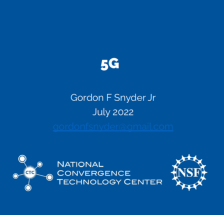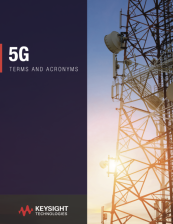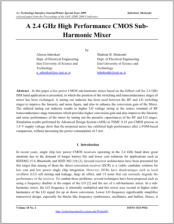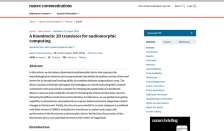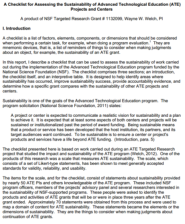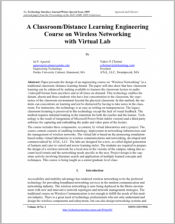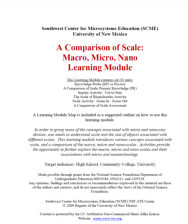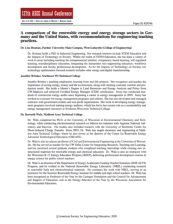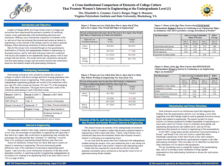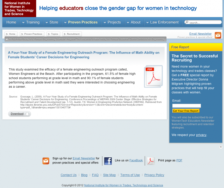Browse Resources
Resources |
|---|
These resources were developed by the National Convergence Technology Center (CTC) and include presentation documents and lab activities on essential 5G concepts and skills. These materials are intended to be used as a classroom module. This material was created in response to ongoing discussions...
This 12-page resource, provided by Keysight Technologies, contains a list of the common terms and acronyms for 5G technologies. Definitions are provided for each term. Users can view it online or download it for free.
This paper, from Alireza Saberkari and Alireza Saberkari of the Department of Electrical Engineering at the Iran University of Science and Technology, covers 2.4 GHz High Performance CMOS SubHarmonic Mixers. An overview of the proposed mixer structure is given, as well as simulation results, and a...
This 10-page article, from Nature Communications, discusses research related to neuromorphic computing. This research involves "... a biomimetic audiomorphic device that captures the neurobiological architecture and computational map inside the auditory cortex of barn owl..." Mimicking barn owls "...
This paper from Wayne W. Welch of the University of Minnesota contains a checklist that can be used to assess the sustainability of an Advanced Technological Education program. As stated in the introduction, this checklist "is designed to help identify areas where sustainability has occurred,...
This paper, from engineering faculty at Purdue University and the president of ATeL LLC, producer of virtual lab technology, covers the design of an engineering course on "Wireless Networking" in a traditional classroom and distance learning format. The paper discusses "how classroom learning can be...
Module Description:
This module, from Support Center for Microsystems Education (SCME), introduces "various concepts associated with scale, and a comparison of the macro, micro and nano-scales." This module is divided into the following six units: Knowledge Probe (KP) or Pre-test, Comparison of...
This 22-page paper was presented at the 2020 American Society for Engineering Education Annual Conference and reports on a U.S. faculty international study program. This study explored the intersection of the German renewable energy and energy storage sectors. The international program included...
This poster, from the National Institute for Women in Trades, Technology, and Science, provides information on elements of college culture that promote women's interest in engineering. The poster displays the results of a National Science Foundation study identifying "four common factors across...
This study, from the Women in Engineering Programs & Advocates Network, examined the efficacy of a female engineering outreach program called Women Engineers at the Beach. After participating in the program, 61.5% of female high school students performing at grade level in math and 90.1% of female...
|
| ← PreviousNext → |
